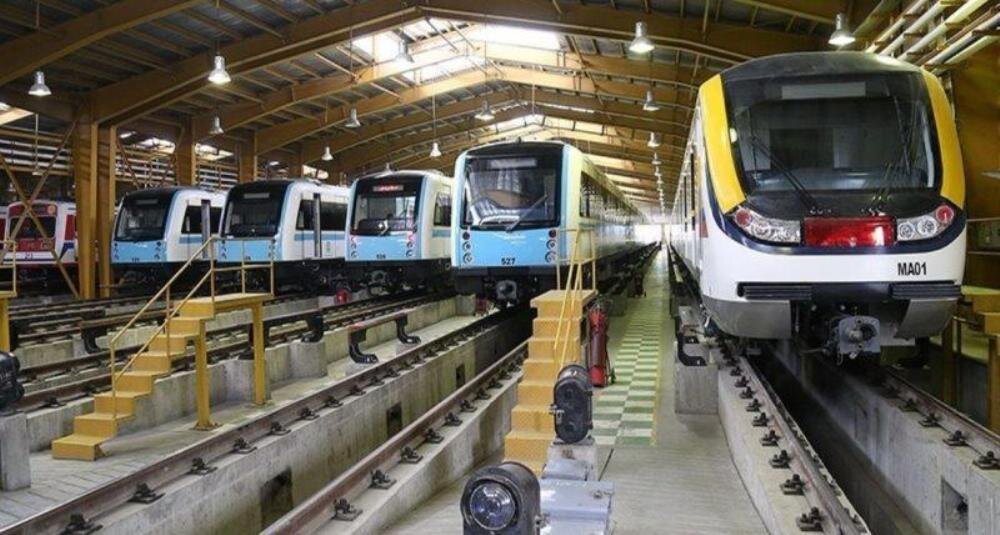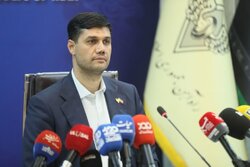
Railway fleet receives 213 new domestically-made locomotives, wagons

During the ceremony, Saied Rasouli, the head of Islamic Republic of Iran Railways (known as RAI), said that the number of domestically produced locomotives and wagons has increased by 58 percent, adding that according to a memorandum signed last year with the Budget and Planning Organization (BPO), by the end of the next Iranian calendar year (March 2021) another 974 locomotives will be added to the country’s rail fleet.
According to the official, a total of 1791 locomotives and wagons worth 20 trillion rials (about $476.2 million) are planned to be added to the county’s railway fleet.
“By the end of the current Iranian year [March 19, 2020], 37 passenger wagons, 30 locomotives and 217 freight wagons will be added to the rail network,” Rasouli added.
The official noted that currently the average age of the country’s passenger and freight wagons stands at 24 years, and the number will decrease significantly when the new wagons join the fleet.
Back in June, Rasouli had announced that 20 trillion rials (about $476.2 million) has been allocated for renovation of 1000 passenger and freight wagons and also locomotives in the current Iranian calendar year (began on March 21).
He said this amount has been allocated by the Planning and Budget Organization.
In this year, which is named as the year of "Pickup in Production" by the Supreme Leader Ayatollah Seyed Ali Khamenei, all efforts of RAI are for renovating the railway fleet of the country by relying on domestic producers, the official further stressed.
According to Saeed Mohammadzadeh, the previous head of RAI, development of Iranian railways requires more than 32,000 wagons and locomotives in the next four years when the railway infrastructures are developed in the country.


Trump weighs using $2 billion in CHIPS Act funding for critical minerals

Codelco cuts 2025 copper forecast after El Teniente mine collapse

Electra converts debt, launches $30M raise to jumpstart stalled cobalt refinery

Barrick’s Reko Diq in line for $410M ADB backing

Abcourt readies Sleeping Giant mill to pour first gold since 2014

Nevada army depot to serve as base for first US strategic minerals stockpile

SQM boosts lithium supply plans as prices flick higher

Viridis unveils 200Mt initial reserve for Brazil rare earth project

Tailings could meet much of US critical mineral demand – study

Kyrgyzstan kicks off underground gold mining at Kumtor

Kyrgyzstan kicks off underground gold mining at Kumtor

KoBold Metals granted lithium exploration rights in Congo

Freeport Indonesia to wrap up Gresik plant repairs by early September

Energy Fuels soars on Vulcan Elements partnership

Northern Dynasty sticks to proposal in battle to lift Pebble mine veto

Giustra-backed mining firm teams up with informal miners in Colombia

Critical Metals signs agreement to supply rare earth to US government-funded facility

China extends rare earth controls to imported material

Galan Lithium proceeds with $13M financing for Argentina project

Kyrgyzstan kicks off underground gold mining at Kumtor

Freeport Indonesia to wrap up Gresik plant repairs by early September

Energy Fuels soars on Vulcan Elements partnership

Northern Dynasty sticks to proposal in battle to lift Pebble mine veto

Giustra-backed mining firm teams up with informal miners in Colombia

Critical Metals signs agreement to supply rare earth to US government-funded facility

China extends rare earth controls to imported material

Galan Lithium proceeds with $13M financing for Argentina project

Silver price touches $39 as market weighs rate cut outlook


















